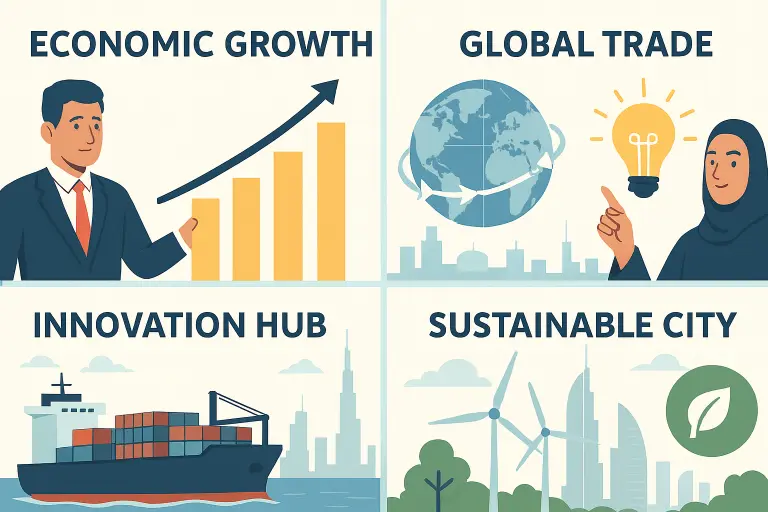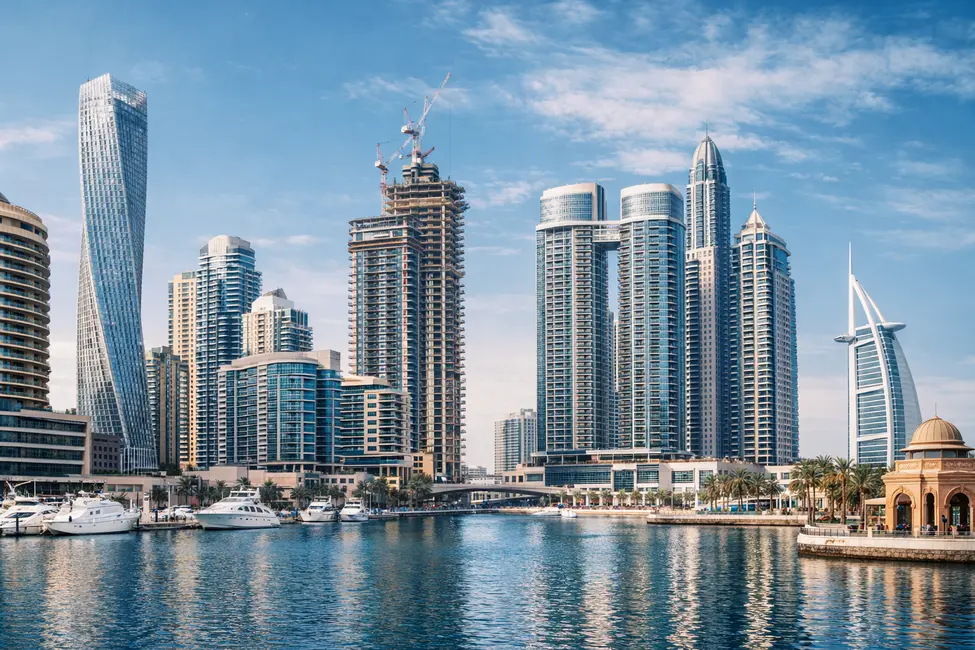How the Dubai Economic Agenda (D33) Will Reshape Dubai’s Future by 2033

The Dubai Economic Agenda (D33) is a visionary strategic plan launched by Dubai’s government to transform the emirate’s economy by its bicentennial year of 2033. The core goal of D33 is to double the size of Dubai’s economy and position the city among the world’s top three destinations for living, working, and investing. This ambitious agenda emphasizes building a strong digital economy, fostering innovation, and promoting sustainable development. By executing this plan, Dubai aims to attract foreign investment and create significant new employment opportunities.
Key targets of D33 include:
- Doubling Dubai’s GDP by 2033, positioning it among the world’s top three cities for living, working, and investing.
- Creating around 400,000 new jobs across various sectors.
- Expanding foreign trade volume by entering new markets and strengthening trade partnerships.
- Establishing Dubai as a global hub for logistics, finance, tourism, and technology.
Key Focus Areas and Growth Sectors
D33 focuses on five main economic sectors to drive long-term growth in Dubai:
- Logistics: Expanding and streamlining trade and supply-chain networks, reinforcing Dubai’s status as a global logistics gateway.
- Manufacturing: Boosting the emirate’s industrial base by encouraging new factories, technology-driven production, and sustainable manufacturing practices.
- Finance: Enhancing Dubai’s role as a leading financial center, including support for fintech, Islamic banking, and financial innovation.
- Tourism: Investing in world-class attractions and infrastructure to attract more international visitors and diversify the tourism sector.
- Innovation & Digital Economy: Making innovation central to the economy, with initiatives like Sandbox Dubai – a real-world testing environment for emerging technologies—to promote startups and research.
Major Projects and Initiatives
The D33 agenda includes a series of transformative projects and programs. Notable initiatives under the plan include:
- Sandbox Dubai: A platform for testing and scaling cutting-edge technologies in sectors such as fintech, mobility, and health.
- Doubling Foreign Trade: Aggressive expansion of Dubai’s international trade volume by entering new markets and strengthening supply chains.
- Global Trade Network: Connecting an additional 400 cities worldwide through trade partnerships and economic linkages, significantly expanding Dubai’s trade network.
- Green Industry Plan: Launching programs to foster sustainable and environmentally friendly industries, aligning economic growth with global sustainability goals.
- Smart Infrastructure and Services: Investing in digital platforms, smart city services, and infrastructure improvements to make Dubai one of the fastest and most connected cities in the world.
Looking Ahead to 2033 and Beyond
By the time Dubai celebrates its 200th anniversary in 2033, the Dubai Economic Agenda (D33) aims to have secured the city’s position as a leading global hub for business and innovation. The vision is for Dubai to be one of the fastest, safest, and most connected cities worldwide, consistently attracting international talent and investment. In addition, D33’s economic strategies work in concert with long-term urban planning efforts. For example, the Dubai 2040 Urban Master Plan—a roadmap for sustainable urban development—complements D33’s vision by ensuring that infrastructure and city planning support the planned economic growth.
In summary, the Dubai Economic Agenda (D33) is a comprehensive blueprint for Dubai’s future. It aims to create a diversified, technology-driven economy by 2033. By focusing on key sectors like logistics, finance, tourism, and technology, and by launching innovative projects, D33 is designed to reshape Dubai’s economy by 2033 and establish a dynamic, knowledge-based city that attracts investors, businesses, and residents from around the globe.
Get In Touch
Latest Blogs
Mohammed bin Rashid launches AED12.8 billion strategic expansion projects for Dubai Silicon Oasis

Oil faces price ceiling as supply surge outpaces demand

Why Dubai Real Estate Is Growing Despite Global Slowdown

Dubai real estate posts strongest year on record as market shifts toward sustainable growth

